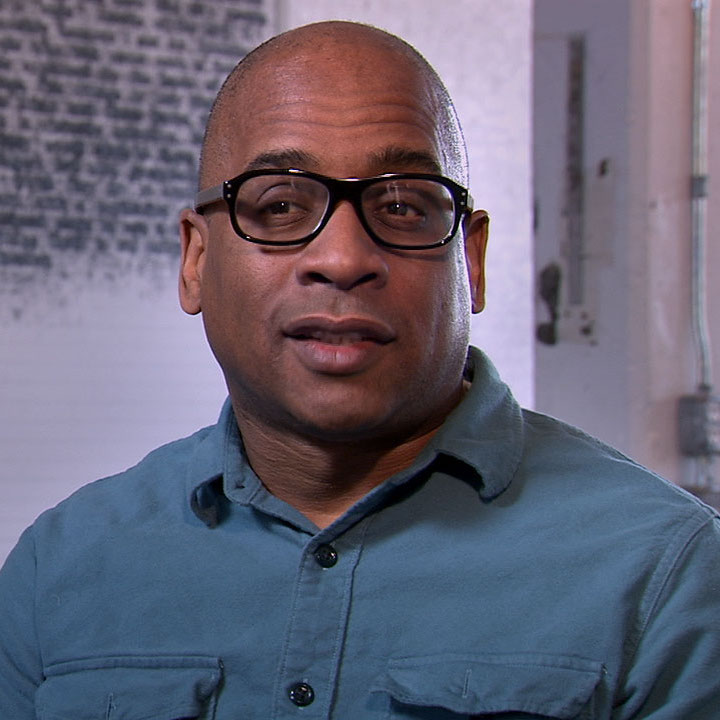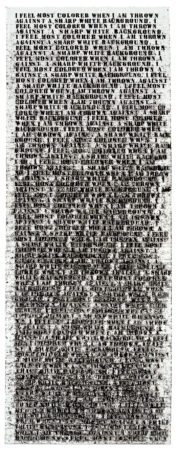Continue playing
(Time remaining: )
Play from beginning
Continue playing "{{ controller.videos[controller.getVideo(controller.currentVideo)].segmentParentTitle}}"
{{controller.videos[controller.getVideo(controller.currentVideo)].title}} has ended.
Layers of MeaningGlenn Ligon
Glenn Ligon discusses texts and cultural events, such as the writings of James Baldwin and the Million Man March, that inspired some of his paintings. Although viewers who are familiar with these references might have a “richer” experience than those who don’t, as Ligon explains, having this knowledge is not necessary to have a meaningful experience with his work.
Ligon was interviewed in 2011 at his Brooklyn, New York studio.
More information and creditsCredits
Producer: Ian Forster. Consulting Producers: Wesley Miller & Nick Ravich. Interviewer: Susan Sollins. Camera: Joel Shapiro. Sound: Patrick Christensen & Judy Karp. Editor: Morgan Riles. Artwork Courtesy: Glenn Ligon, The Power Plant, Toronto; Regen Projects, Los Angeles; and the Whitney Museum of American Art, New York. Theme Music: Peter Foley.
Art21 Exclusive is supported, in part, by the New York City Department of Cultural Affairs in partnership with the City Council; 21c Museum Hotel, the Lily Auchincloss Foundation, and by individual contributors.
Closed captionsAvailable in English, German, Romanian, Italian, Japanese, Korean, Chinese, Italian
Through the Art21 Translation Project, multilingual audiences from around the globe can contribute translations, making Art21 films more accessible worldwide. Translate this video now.
Interested in showing this film in an exhibition or public screening? To license this video please visit Licensing & Reproduction.
Glenn Ligon’s paintings and sculptures examine cultural and social identity through found sources—literature, Afrocentric coloring books, photographs—to reveal the ways in which the history of slavery, the civil rights movement, and sexual politics inform our understanding of American society. Ligon appropriates texts from a variety of literary writers including Walt Whitman, Zora Neal Hurston, Gertrude Stein, James Baldwin, and Ralph Ellison. In Ligon’s paintings, the instability of his medium—oil crayon used with letter stencils—transforms the texts he quotes, making them abstract, difficult to read, and layered in meaning, much like the subject matter that he appropriates. In other works that feature silkscreen, neon, and photography, Ligon threads his own image and autobiography into symbols that speak to collective experiences.
“Like any artwork, things become richer if you know more about them but I don’t think that’s crucial.”
Glenn Ligon
Black History
Carrie Mae Weems
Kerry James Marshall
Artwork Survey: 1990s
Glenn Ligon
Preview





